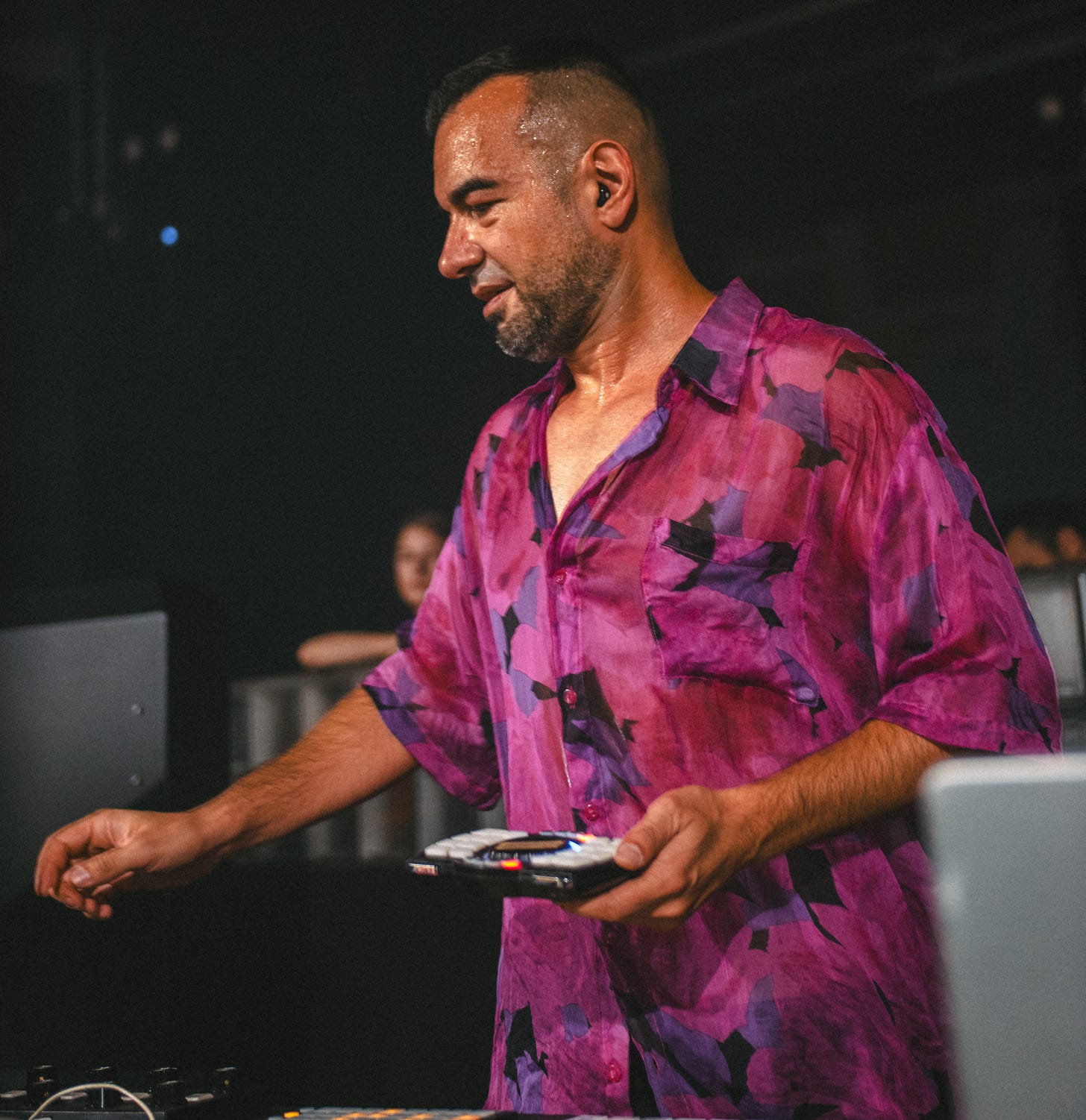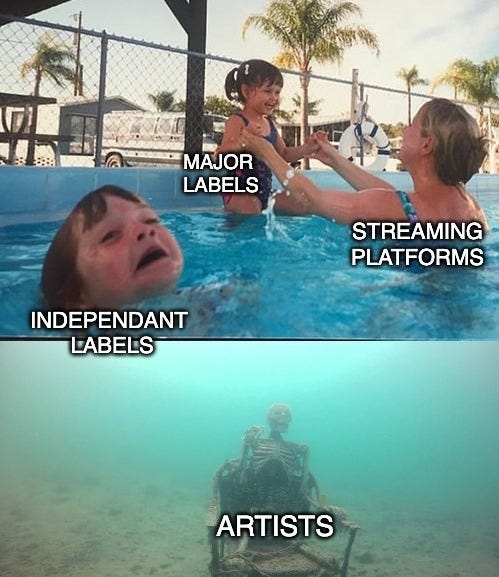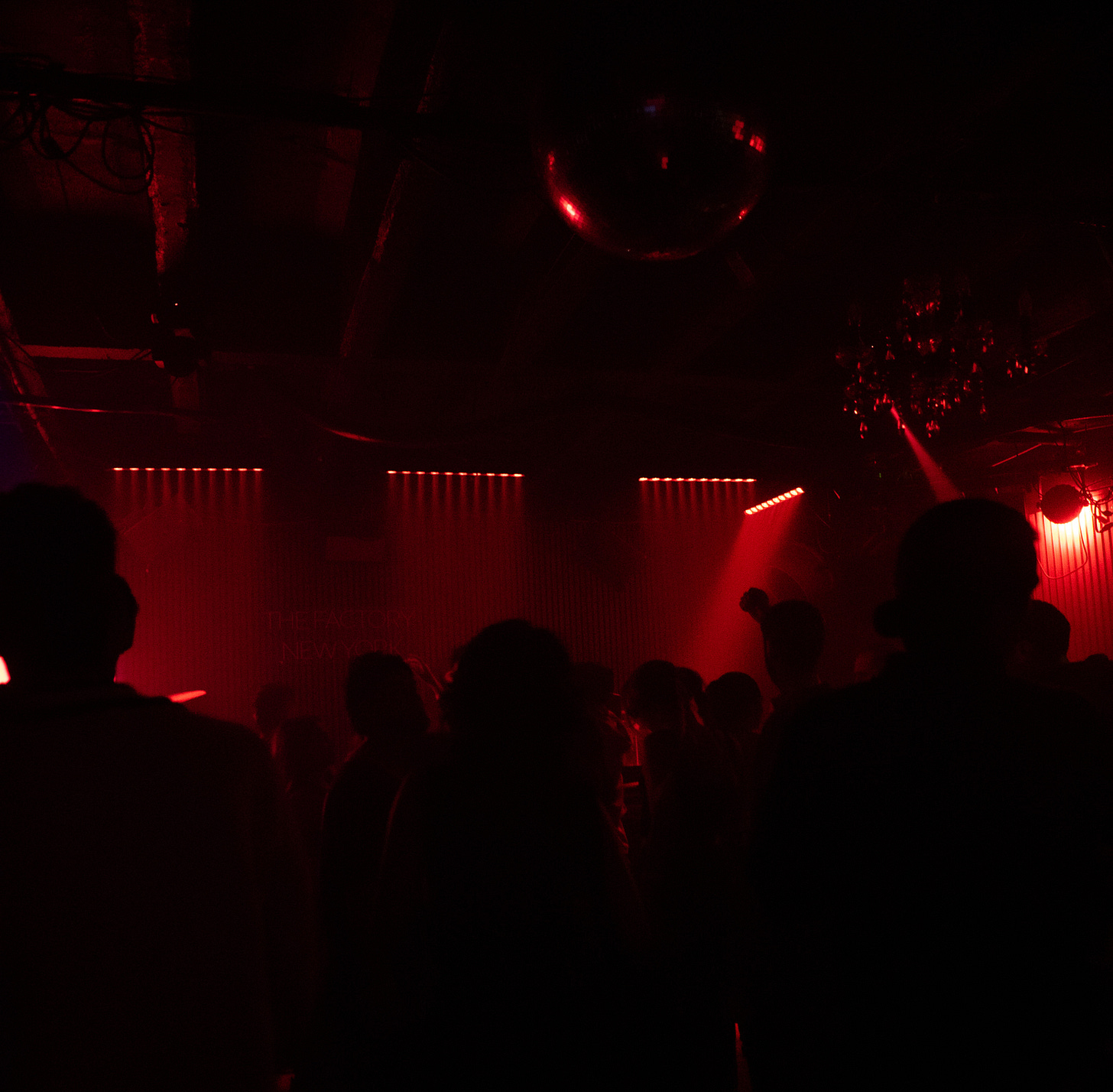Guest List +1 — Rethink, Remix, Reconnect: A New Era for Music
For the creators, the listeners, and the future we’re building together. We're here to connect the dots between music, tech and the people who care. You in?
Welcome {back} to Guest List +1 — where we’re breaking down barriers between artists and fans to reshape the future of music. The music industry churns out billions on an annual basis, but somehow, the artists — that are the center of it all — are still the ones earning the least. That’s why we’re here: to explore new ways to connect, empower, and uplift the creative voices and dedicated fans that fuel this movement.
In every GL+1 issue, you’ll find — deep dives into music and tech, exclusive artist stories, fan celebrations, insider event previews, and chances to shape what’s next. Think of it as your all-access pass to the sound, the stories, and the innovation driving the next wave of music.
We’re turning ideas into action. From groundbreaking tech integrations to club nights with our community, our mission is to foster a music culture that creates equitable outcomes for artists and a richer experience for fans. Polkadot’s game-changing tech is already setting the stage, MuFi is working on making it easier than ever to bring ideas to life with tools that empower creativity between artists, fans, and businesses and {bash} events are proving how ground-breaking, artist-first experiences can redefine what’s possible.
Let’s jump into this new issue and set the tone for what’s next.
Royalties are like… really slow 💤
Un-F#$k the music industry! Excuse me? Yes, you heard it right. Inspired by the Un-F#$k the World campaign, which encourages local action for global improvement, let’s take a similar approach to fixing the music industry. It’s no secret the industry is riddled with issues. Since streaming began, the global music economy has exploded —not just in the amount of music, but in the sheer number of artists and payouts spanning the globe. Let’s dive into royalty payouts and how blockchain — especially Polkadot — could radically improve them.
"We forecast that global music industry revenues will grow at a compound annual rate of 7.6% through 2030, reaching nearly $164 Billion"
- 'Music in the Air' by Goldman SachsIn the US, streaming numbers were up 10.4% in 2023, bringing it to a staggering $19.3 B-b-billion. And Streaming accounted for ~66% of the entire global market, according to the 2024 IFPI Global Music Report. That is a lot of money that should be headed right for the pockets of your favorite artist, right? But before slogging-off major record labels, let’s do some homework on how the sausage gets made.
There are two main ways to release music today: through a record label or independently. These drastically impact how royalties are collected.
Here are two fairly standard examples of how this works:
The Label Route: You sign a “Master Recording” contract giving the label exclusive rights to release and distribute your music. They collect royalties, take half, and give you the other half. If you register your work properly, you can collect another 15% for writing and performing.
The Indie Route: Skip the label, release music yourself, and keep 100% of the royalties—except Spotify takes 30%, YouTube up to 55%, and distributors like DistroKid or TuneCore grab another 8–15%. Every time money changes hands, someone takes a cut, and too often, there’s nothing left for the artist to even invoice.
And the cherry on top? Artists wait 12–18 months to collect royalties. Yes, even if you write a Britney-sized hit, you could still be sleeping on your brother-in-law’s couch. Write a banger, get signed, crush streaming, get famous...and still can’t afford a sequined jacket for your LA gig. This happens, and it’s turbo-lame (yes, I coined that; use at will).
Why the Delay?
Complex Accounting: Music spans countless platforms globally, each with different reporting cycles. Royalties come from streams, sales, performances, and sync deals, all needing accurate tracking and split calculations.
Data Processing: Platforms take time to gather, validate, and reconcile usage data.
Payment Cycles: Many organizations pay quarterly or annually, with currency conversion further delaying things.
Admin Overhead: Copyright checks, disputes, and tax compliance slow things even more.
But let’s pause on “complex accounting.” In Web3, haven’t we already solved this? Any decent Substrate dev working on a DeFi project handles complex accounting from day one. Tracking? Blockchain was practically made for that. Yet we have a $30 billion industry struggling with these basics.
PS: Wanna see where music x web3 is being built?👇
Alright, now let’s talk “data aggregation” and “data validation.” (Yes, I cherry-picked, don’t @ me.) Blockchain excels at this. Saying the music industry struggles here is like saying you want soup but only have chicken broth. Bro, you already have soup — just add veggies. Web3 is built for aggregating and validating data. Satoshi kicked things off, and Gav Wood scaled it. (Yes, I paraphrased their life philosophies, but you get my point)
Now, let’s try a thought experiment. Picture an artist releasing music — whether through a label or independently — wrapped in Polkadotted Web3 dough. Streamlined tracking and payments replace the office park accountants in Paramus, NJ, with their stinky kids and gym-affair worries. Blockchain tech already solves these problems, yet the music industry lags. Why?
The Web3 dev community has solved these issues. Sure, there’s code to refine and systems to debug, but the blueprint exists. Have I mentioned a single problem in the music royalty system that blockchain hasn’t already addressed?
I’m an artist, a Web3 professional, and a tech optimist. I know the dev community has built elegant solutions to data challenges, and my goal is to connect those dots for the music industry. Let’s keep exploring and improving, asking “what if” and “how come.” Let’s prove to artists that a better world exists for them to thrive and create.
Thank you, sincerely, from the trenches of the music industry.
Throwback to {b} Brooklyn — Harder, Faster, Deeper ⚡
{b} is the unapologetic, harder-edged sibling of {bash} — an intimate sub-party with raw techno that hits a little harder, faster, and is truly hypnotic. Launched in December with a wildly successful event in Brooklyn, {b} brought a no-frills, underground energy that reminded everyone why they fell in love with techno.
The Brooklyn debut wasn’t just a party, it was proof of concept for Polkadot’s canary network, Kusama (expect chaos). Packed with die-hard fans and pulsing with raw energy, it showcased the power of a small, tightly-knit community united by music. And it was just the beginning.
While {b} sets the stage for an unfiltered club experience, {bash} had an incredible 2024, laying the foundation for a high-impact 2025. With Polkadot x MuFi already in motion, we’re unlocking possibilities that go beyond the dancefloor — from blockchain-driven royalties to decentralized event experiences.
Together, we are creating a music ecosystem that puts artists and fans at the center, where they’ve always {b}elonged.
Stay tuned. We’re just getting started 👀
Thank you to all the artists, partners and our amazing community. From NYC to Brussels, from KiNK to Radio Slave, 2024 gave us the momentum, 2025 will deliver the impact. As we push forward, we’re doubling down on our mission to make music more connected, fair, and future-facing. We’re building something bigger than events — this is a movement for everyone who believes music can be better.
🎯 Wait, one last thing — don't forget to follow us on Instagram and X for live event updates and behind-the-scenes content. Thank you. 






Good read!
🎯🙌